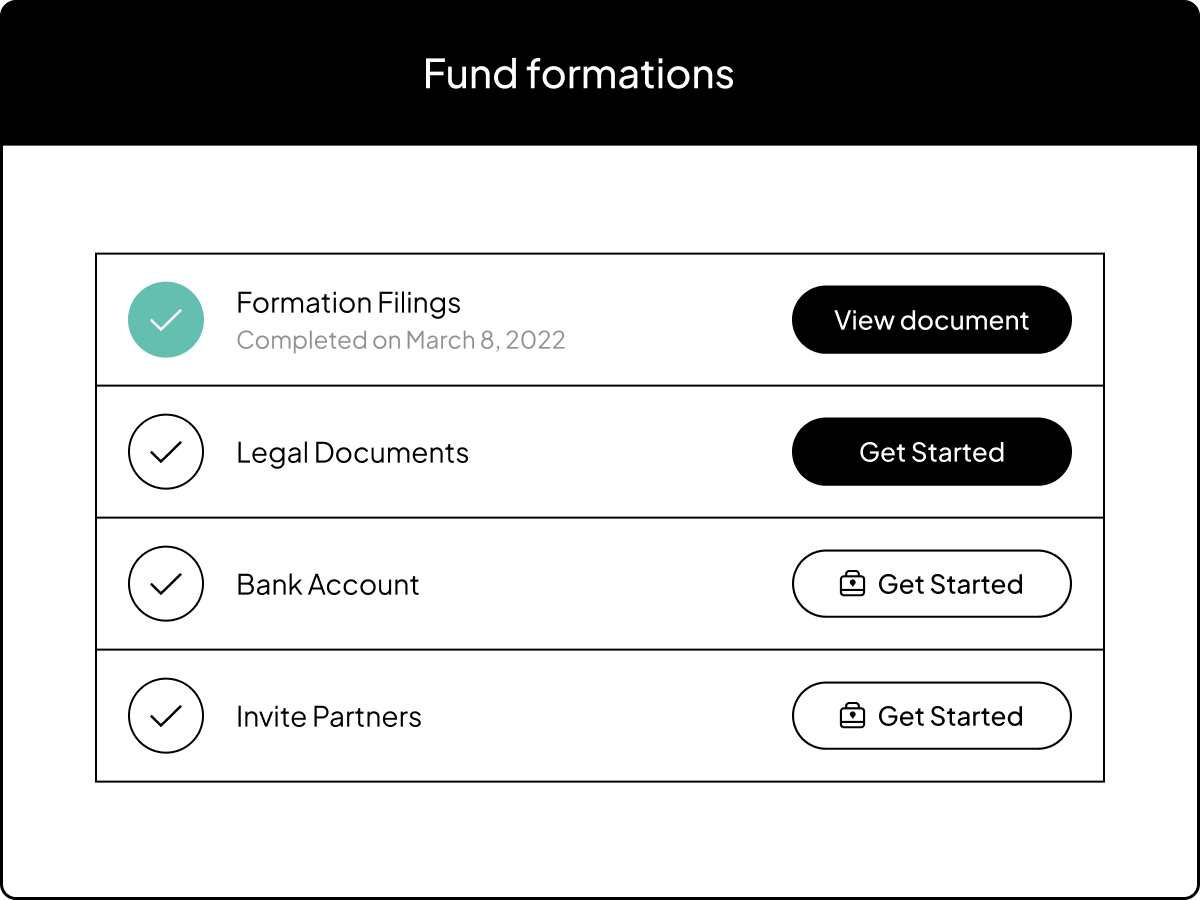Making the decision
The first step to launching a venture capital fund is developing your vision. If you’re considering starting your own fund, you might already work at a venture capital firm or be an angel investor. Or maybe you work at a tech company or nonprofit organization completely outside the startup ecosystem.
Regardless of where you’re starting from, it’s crucial to have an original idea and an understanding of the space you’re stepping into. Depending on your background, you might already have a portfolio of personal investments or a network of founders who rely on you for advice. At the very least, you should be closely monitoring the people, organizations, and systems related to your vision. From there, you can define your goals and figure out whether or not a venture capital fund is the best way to achieve them.
What problem are you trying to solve?
Before you can start a new fund, you need to clarify the problem you’re trying to solve. Do you want to funnel more money into a particular industry or geographic area, for example? Maybe you want to boost capital injections for a specific type of founder or increase accessibility at a certain stage of development.
Be as specific as possible about your intentions. Once you know the problem you want to solve—say, lack of capital for female founders at the seed stage or lack of support for early-stage founders in the Midwest—it’s time to do some research and reflection. Consider the following factors as you gather information:
- Your target demographic: Who are the founders and companies you want to help? What are their struggles and goals? Where do they live and operate? How much capital have they historically raised and when?
- The market landscape: Do institutional investors want access to your target demographic? Why or why not? What other companies and venture capital firms are trying to solve the problem you want to solve? Where are they succeeding and falling short?
- Your expertise: What kind of experience and expertise do you have? Is your knowledge, skill set, or network an asset? What tools do you have at your disposal? Where will you need help?
The answers to these questions will either serve as the foundation to your fund creation strategy or guide you in another direction.
Is a venture capital fund the best choice for you?
A venture capital fund may not be the most effective way to reach your goals and create positive change in the world. After all, venture capital funds aren’t necessarily designed to even out the playing field for all founders who need capital—they’re designed to help a small number of specific companies scale rapidly.
Most venture capital-backed companies have business models that depend on hockey stick growth: a sudden and rapid incline after a long period of relatively linear progression. For the top-performing venture capital funds, ~4.5% of all investments generate ~60% of the returns, according to an analysis by Chris Dixon of Andreessen Horowitz, Performance Data and the ‘Babe Ruth’ Effect in Venture Capital. It’s high risk, high reward. When venture capital-backed companies succeed, they knock it out of the park. However, the possibility of failure is high.
That’s why starting a venture capital fund isn’t a catch-all solution; it depends on the market and your vision. The venture capital world is competitive and always in flux, so you need to make sure it’s the right environment for you before jumping in.
Transitioning to the founding general partner role
Even if you’re a seasoned investor, raising a fund and running your own firm require a completely different set of skills than making individual investments or working within an existing venture capital organization.
When you start a venture capital fund, you’ll be acting as a general partner (GP). As a GP, you’ll be both an entrepreneur of your own firm and a fiduciary of outside capital. You have to be prepared to attract the attention of companies and founders, correspond with limited partners (LPs), develop a portfolio construction strategy, create and execute deals, and handle fund administration.
That’s why it’s helpful to start with the following (although not an exhaustive list):
- A track record of investing in companies as an angel investor or with a firm
- A compelling investment thesis
- Good relationships with founders
- Business or industry expertise
- A competitive drive to win deals
- A smart portfolio construction strategy
- Great networking skills
- Patience
- The ability to articulate why your fund is different
- The willingness to contribute financially
DISCLOSURES: This communication is on behalf of eShares Inc., d/b/a Carta, Inc. (“Carta”). This communication is not to be construed as legal, financial, accounting or tax advice and is for informational purposes only. This communication is not intended as a recommendation, offer or solicitation for the purchase or sale of any security. Carta does not assume any liability for reliance on the information provided herein.
This communication contains links to articles or other information that may be contained on third-party websites. The inclusion of any hyperlink is not and does not imply any endorsement, approval, investigation, or verification by Carta, and Carta does not endorse or accept responsibility for the content, or the use, of such third-party websites. Carta assumes no liability for any inaccuracies, errors or omissions in or from any data or other information provided on such third-party websites.
All product names, logos, and brands are property of their respective owners in the U.S. and other countries, and are used for identification purposes only. Use of these names, logos, and brands does not imply affiliation or endorsement.

